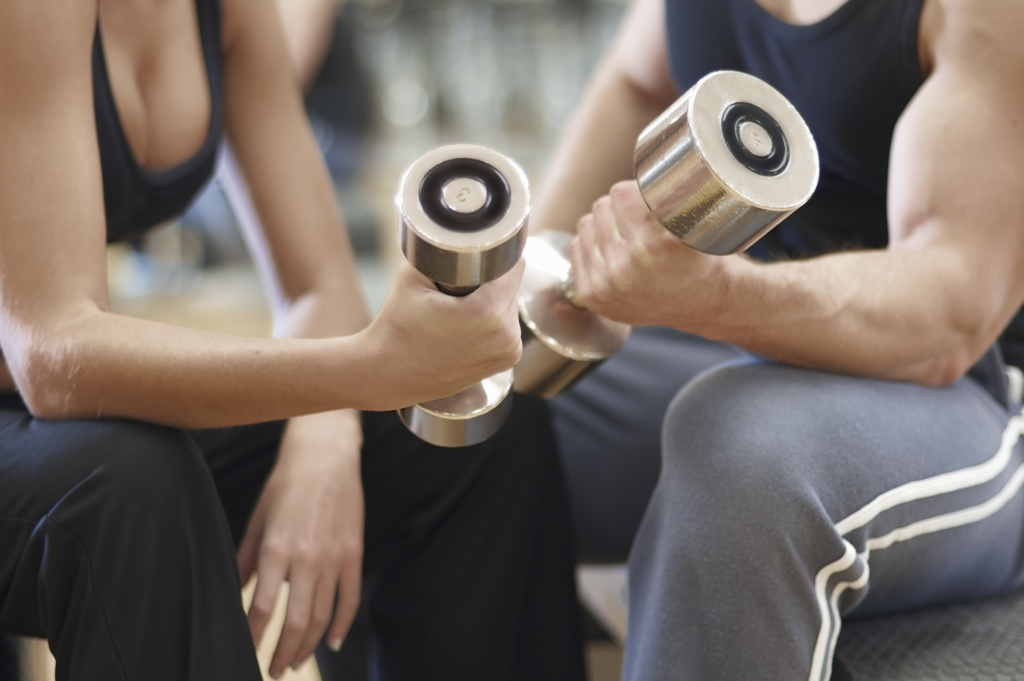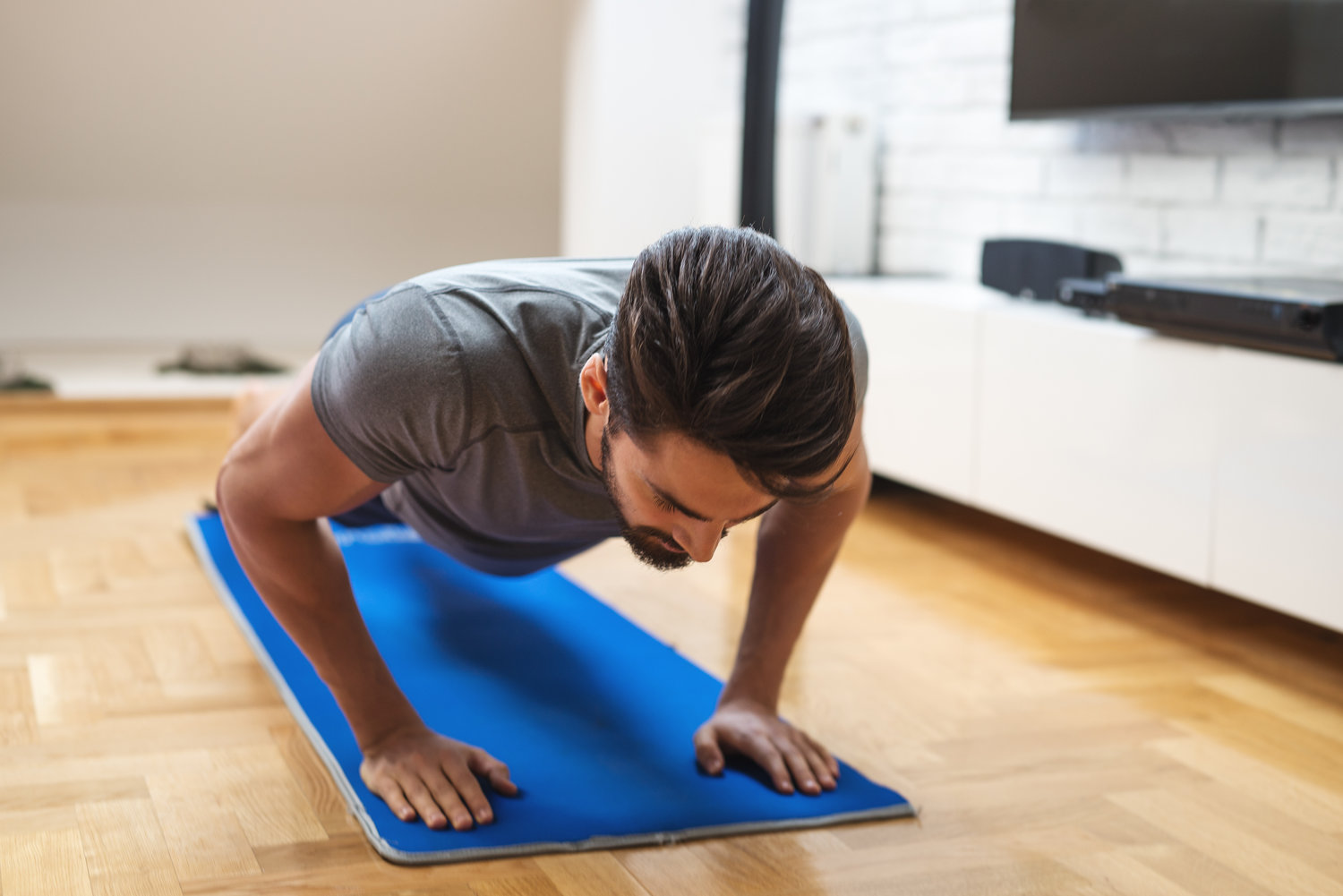Workout at home without a gym! Is it possible or not?
You can train productively at home, especially if you are an introvert and do not want to see anyone. But even if you love to communicate with strangers and stand in line to the simulator, there are times when there is no opportunity to go to a fitness club. Sometimes you need to stay at home and not leave for a long time. Sometimes you are horrified to find that in your hotel on a tropical island there is only a buffet, but there is no wall bars. Sometimes you prepare for a record in bench press, and the administration sends you on a business trip to the polar station, where there is no bar or even a bench. Finally, sometimes parents are driving them all summer to the village, crossing the dreams of pumping their biceps by September 1. Do not despair – in any of these situations, you can continue training with a minimum of equipment.
Fitness – finding and maintaining good shape
To improve the shape and improve the cardiovascular and respiratory systems, the hall is not needed at all, just your own body is enough. The easiest and most effective method is circular training, when you perform several exercises in a row that load different muscle groups. First test your condition: do one approach in different exercises, performing in each a maximum of pure, high-quality repetitions; then divide the numbers by two – this is your starting point.
Replay is one complete exercise. For example, raising and lowering a hand means doing one repetition. Ten times to raise and lower your hand is to do ten repetitions. If you did the exercise five times, and then rested and did it five more times, then you did two times (circle, set) five repetitions.

To improve the shape and improve the cardiovascular and respiratory systems, the hall is not needed at all, just your own body is enough. The easiest and most effective method is circular training, when you perform several exercises in a row that load different muscle groups. First test your condition: do one approach in different exercises, performing in each a maximum of pure, high-quality repetitions; then divide the numbers by two – this is your starting point.
For example, if you can do ten pushups, 20 twists, 25 squats and gluteal bridges, and 30 lifts on toes, the circuit training program will look like this:
- push-ups – 5;
- twisting – 10;
- squats – 12;
- bridges – 12;
- lifting socks – 15.
The pauses between exercises are minimal, after completion – one minute rest and the whole circle again. You can start at the first training session with a couple of laps and gradually increase to five, then add repetitions. The basic rule: first, the most laborious movements are performed, in which the load is large and the repetitions are less, then lighter and more repetitive. Although this set of exercises without adaptations is enough to improve the shape, they do not cover the top and middle of the back. For health and good posture, it is advisable to get at least a rubber expander (rope) and add vertical and horizontal thrust, securing it to something. Exercise every other day, swimming, running or just walking in the days of rest.
When you are already training for strength, but temporarily lose your native bar, it is possible to maintain some results without equipment. Of the three basic force movements (bench press, squats and deadlifts), only a projectile is needed for thrust, and bench exercises and squats can be worked out with its own weight. The intensity is increased by increasing the speed of movement (power) and the transfer of a greater load on the working muscles.
The program must have a general warm-up for the whole body, including light pushups and squats, then a power (power) unit with large intervals of rest (1-2 minutes or more).
Workout # 1 (Monday)
- Dynamic push ups with cotton – 5–6 sets of 1–5 repetitions. Lower smoothly, pause at the lowest point and push off from the floor, trying to climb as high as possible.
- Squats with jumping – 5-6 sets of 1-5 repeats. Just go down smoothly, pause and jump as high as possible.
Workout # 2 (Wednesday)
- Pushups on one hand from the floor or from an elevation – 4–5 sets of 3–6 repetitions with each hand. For a start, you can push up from the table and chair, gradually increasing the intensity.
- Squats on one leg from the bottom – 4–5 sets of 3–6 repetitions with each leg. Rise to a selected elevation or pause at the lowest point.
Workout # 3 (Friday)
- Pushups on two arms with legs on the dais – 3-4 sets of 6-8 repeats. Place your feet on a chair, table, or even push them against a wall so that repetitions are difficult but clean.
- Squats on one leg – 3–4 sets of 6–8 repetitions with each leg. Pick up such depth that each repetition was heavy enough, but technical.
A little rest from the camp and holding a heavy bar on your shoulders will be beneficial, but if your stay in the room, on the island or the polar station is delayed, you must already collect some kind of projectiles. It can be water canisters or bags of food, coconut bundles or stones, after all, a home bar and racks. The muscles of the back, buttocks and the back of the thighs have great strength and require additional load.
Training of the different muscle groups
For hypertrophy (increase) of the muscles, they must be loaded sufficiently long with medium and high number of repetitions. If you have a serious lack of weight and muscle mass is gaining difficulty, it is better to go to a split-program in which individual workouts are devoted to their muscle groups or types of exercises. So you can concentrate as much as possible and go all out in different movements, giving more stimulus and then more rest for growth.

Continue to warm up thoroughly for your entire body, then work on specific parts.
Training of the chest, shoulders, triceps (Monday)
- Pushing on one hand from the floor or from the elevation – 3-5 sets of 6-8 repeats with each hand. Pick up the height of the hands, so that the last repetition in the approach was almost to failure (but do not bring to it).
- Pushups with legs on the dais – 3–4 sets of 8–12 repetitions. Pick up the height for the legs, so as almost reach failure.
- Normal pushups from the floor – 1–2 approaches with a maximum of high-quality repetitions to complete.
Leg training (Wednesday)
- Squats on one leg from the bottom or with a pause below – 3-5 sets of 6-8 repeats on each leg. Pick up such depth that the last repetition in the approach was almost to failure (but do not bring to it) –
- Lunges – 3-4 approaches, 8–12 repetitions with each foot or more, to almost achieve failure.
- Regular squats on two legs – 1-2 approaches with a maximum of high-quality repetitions to complete.
Training back and biceps, gluteus, biceps hips (Friday)
Here you need an expander (harness) and a horizontal bar (tree branch), nothing can be done.
- Pull-ups with a reverse grip – 3-5 sets of 6-8 repeats (or how much is obtained without failure).
- Pull-ups on a low crossbar (with feet on the floor) – 3–4 sets of 8–12 repetitions (or how much is obtained without refusal). Or horizontal expander thrust – 3-4 approaches with a maximum of repetitions.
- Deadlift on one leg with an expander (bundle) – 3–4 sets of 8–10 repetitions on each leg.Stand with one foot in the middle of the expander, bend with your back straight, lifting the other leg back; grasp the expander with your hands at such a distance that it is slightly stretched at the lowest point.
- Buttock bridge on one leg – 3-4 approaches to failure on each leg.
This load for the back and buttock is not enough, but better than nothing. Consider purchasing collapsible dumbbells with a supply of “pancakes” – they will allow you to work out your muscles more diversely, which is important for growth.
Watch the video about no-equipment full body workout!